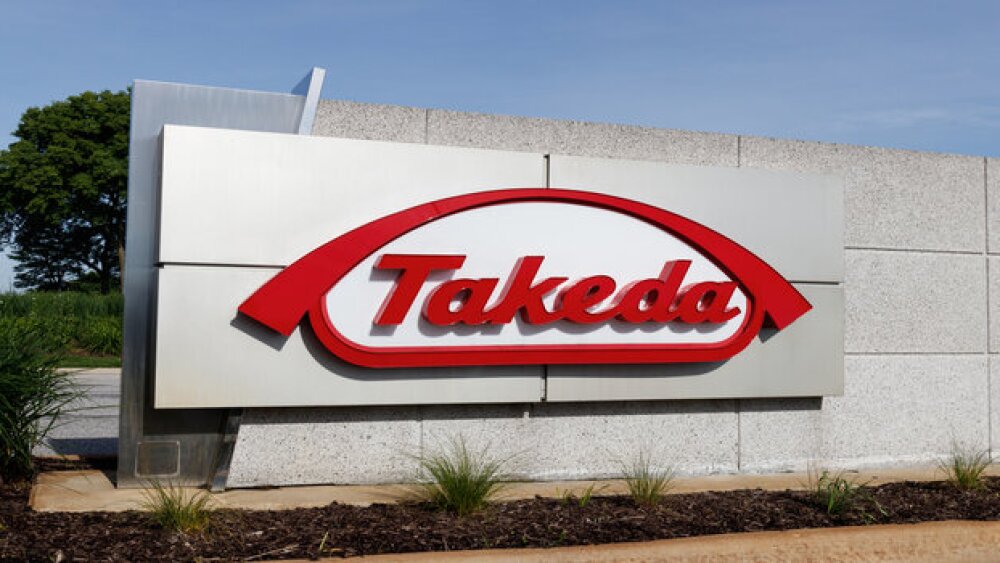Glepaglutide is a Zealand-invented long-acting GLP-2 analog that may offer a treatment option for patients with reduced or complete loss of intestinal function.
Copenhagen, Denmark, October 24, 2017 - The FDA Office of Orphan Products Development (OOPD) has granted an orphan drug designation to glepaglutide for the treatment of the rare disease short bowel syndrome (SBS)*. Glepaglutide is a Zealand Pharma invented long-acting GLP-2 analog that may offer a treatment option for patients with reduced or complete loss of intestinal function. Glepaglutide has been shown to reduce fecal wet weight output as well as indicated increases in both energy, fluid and electrolyte absorption in SBS patients in a Phase 2 trial. Interactions with U.S. and EU regulatory authorities are planned with the aim of moving glepaglutide into Phase 3 clinical trials in 2018.
Britt Meelby Jensen, President and CEO of Zealand, comments:
"The orphan drug designation is great news, both for Zealand and for the patients suffering from short bowel syndrome. The orphan drug designation for glepaglutide enables us to have a closer and more frequent dialogue with the FDA throughout our late stage clinical development. Glepaglutide is one of Zealand's leading product candidates, which we are developing all the way to market, and this designation is an important step for us in our efforts to ensure an efficient path to registration and patient access."
The United States Congress passed the Orphan Drug Act in 1983 to provide incentives for industry investment in treatments for rare conditions. Companies that receive orphan drug designation for their products qualify for various incentives including tax credits for clinical trial costs, relief from prescription drug user fees and the potential for seven years of market exclusivity after the drug is approved.
Short bowel syndrome
Short bowel syndrome (SBS) is a life-threatening and complex chronic severe condition associated with reduced or complete loss of intestinal function. In adults, the main underlying causes of SBS are major intestinal surgery following Crohn's disease, ischemia, radiation damage and surgery. It is estimated that 20,000-40,000 patients are affected by SBS in the U.S. and Europe. The most severely affected people are dependent on daily parenteral support. This requires them to be connected to infusion lines and pumps, which pose significant restrictions on their ability to engage in daily activities.
For further information, please contact:
Britt Meelby Jensen, President and CEO
Tel.: +45 51 67 61 28, e-mail: bmj@zealandpharma.com
Mats Blom, Executive Vice President and Chief Financial Officer
Tel.: +45 31 53 79 73, e-mail: mabl@zealandpharma.com
About Zealand Pharma A/S
Zealand Pharma A/S (Nasdaq Copenhagen and New York: ZEAL) ("Zealand") is a biotechnology company focused on the discovery, design and development of innovative peptide-based medicines. Zealand has a portfolio of medicines and product candidates under license collaborations with Sanofi and Boehringer Ingelheim as well as a pipeline of internal product candidates focusing on specialty gastrointestinal and metabolic diseases.
Zealand is based in Copenhagen (Glostrup), Denmark. For further information about the Company's business and activities, please visit www.zealandpharma.com or follow us on Twitter @ZealandPharma or LinkedIn.
*https://www.accessdata.fda.gov/scripts/opdlisting/oopd/detailedIndex.cfm?
cfgridkey=539216
Attachments:
http://www.globenewswire.com/NewsRoom/AttachmentNg/8adcfbfe-79c2-43d3-a199-5c4e6afd0efd




